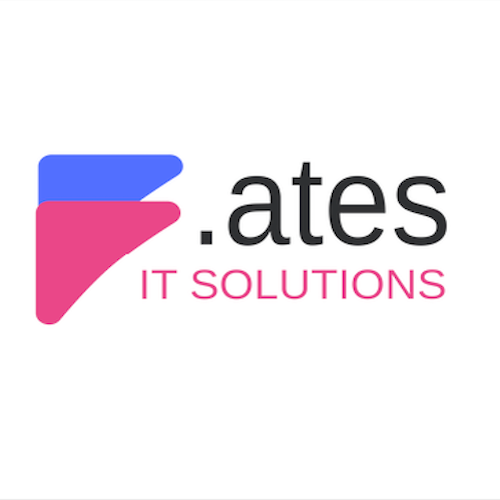Artificial intelligence. Machine learning. Predictive analytics. Abstruse and specialized? Maybe -- but you do not need to have into the algorithms to love what they are able to perform.
Since when applied to ordinary client issues, a tiny AI goes a very long way. A chatbot can reply a hundred clients at the same time; a research engine may show you where the bottlenecks are in your procedures; predictive algorithms can predict what clients will do until they do it.
In close future, the human representative could possibly be refocused on harder tasks -- relied upon to take care of complex escalations and supply warmth and humanity if it actually matters. The opportunities it opens can alter your whole business plan for the greater. Since the advantages it provides are not incremental; they are paradigm-busting.
The spoils of AI visit supervisors who comprehend at which these technologies can be used to work. AI is able to help you reach even the toughest expansion goals -- while basically altering up your company for the better.
Let us take a peek at where that value could be inserted -- and it's not frightening, but enabling. Below are a few truths about the increase of AI, with a few common myths exploded as a bonus.
Make sure AI can intervene, not just interact
The sci-fi variant of AI is obviously a speaking system, literary or alternative extraterrestrial beings. Nevertheless, the massive bulk of AI in usage now is not concentrated on the spoken or typed dialog; it is deployed before that dialog starts, routing the telephone based on insights created out of the data.
What exactly does that involve? It is all about the data. According to tens of thousands or millions of data points, algorithms enable you to evaluate how customers act in various scenarios, comparing scenario A with scenario B across several instances and seeing exactly what happens or causes. Every time a fresh call comes in, the AI is ready to utilize those learnings to make the experience simpler for your client.
That might mean noting that a client has purchased the merchandise X, and buyers of merchandise X tend to make a first service call to the help desk between 14 and 21 days after purchase. So the AI routes that call to some technical representative with a listing of handling these calls successfully. Or it may observe an out-of-pattern behavior from a significant account, and pre-escalate the telephone so that they're immediately put through to someone senior.
What matters here is the fact that it is the algorithm -- that the AI -- which makes the choice. No human coder programmed its behavior. The AI is taking action according to which appears to have worked previously. A good deal of AI occurs before a word is spoken.

AI’s ability to handle multiple conversations = KER-CHING for eCommerce
Obviously, AI technology may -- and can -- participate in the client conversation. Nowadays thousands of the chat windows you find in web applications are "manned" by software robots (bots), not people. They function best when a client's queries cover the frequent pair of topics, since the AI may be outfitted with an equally good group of answers.
(Remember a sizable percentage of difficulty tickets cover the exact same couple subjects, over and over. You do not require an individual human representative to take care of a very simple password reset.)
AI, clearly, does not require a salary and will not become irritable as it deals with exactly the identical question for the thousandth time. However, more to the point, an AI chatbot can cope with hundreds of client conversations concurrently.
We people may believe a hundred individuals typing questions on their keyboards creates a hectic scene. However, a computer's"encounter" of people is that we are glacially slow and largely absent, swooping in on infrequent events to form a few characters. As countless people use Google every day, an AI chatbot may"speak" to many clients at the same time.
Permit retail customers serve themselves, and save big on resources
Let us be blunt: the many prosperous service discussion is where your agent never needed to get involved. As decades past bank clients discovered they much preferred a fast trip to an ATM over waiting in line within the bank, retail clients typically favor self-service software to call the contact center.
Which makes self-serve programs a top priority to the retail contact center. However, AI can do more than simply open a chatbot window. From"learning" behavioral patterns and discerning client aims, it may give the client choices and links inclined to be of use -- designing and simplifying the user encounter on the fly, in a means that is invisible to the consumer but of fantastic usefulness to her.
Clients like self-service, since they're in control. Business leaders enjoy it also as they can serve customers faster and more efficiently at a lower price. With AI, it is a triumph for both.

For the retail contact center, AI is an ally, not a usurper
Last, let us make it very clear that the growth of the machines does not result in your downfall for the people in your own organization. In reality, a significant advantage of AI is because of a helping hand for agents, letting them be more successful in their job. Consider AI as much more your trusted sidekick compared to overlord-in-waiting.
As AI-empowered self-serve apps offer you the client the ideal choices at the ideal time, AI at the contact center can replace many screens of data with only the ideal information necessary for the telephone number. It means quicker handling instances, greater compassion from agents, deeper shared that the comprehension of the issue that demonstrates clients they're through to somebody who can genuinely help.
That all makes for a more successful -- and happier -- agent. And most of us know the impact happy workers have on Net Promoter Score.
AI is the competitive Edge, not your Competitor
There is enormous confusion regarding AI and what it means for the company. Being the supervisor who"has AI" is an excellent plaudit.
However, as a rule of thumb, start looking for the company chance of almost any AI-based solution in addition to the immediate sensible outcome.
If it saves money, requires fewer resources, enhances KPIs or just performs smoother and faster, great. However, open your brain to wider and deeper chances. Imagine if the AI-enabled application calling the number of calls at peak times may also forecast peak periods of demand for some product -- notifying your supply chain conclusions in addition to your customer support ones? Alternately, envision your AI not only managing your problem tickets but learning from what they say, and recommending improvements for your fundamental business procedures consequently?
AI is learning a great deal out of info. But we could learn a great deal from our AI. Along with the supervisor having a feeling of what they can do -- now and tomorrow -- is well positioned to be the company's innovator-in-chief.
Takeaways:
- AI is not an overbearing master, but a faithful servant
- There are many applications of AI past the customer conversation
- AI can plan ahead to make every client interaction successful
- Managers may comprehend the guarantee of AI without needing to know the code
- AI is over a 'helping hand'-- it can help you improve basic business processes connecting to the Ideal agents at the Ideal time for superior experience

